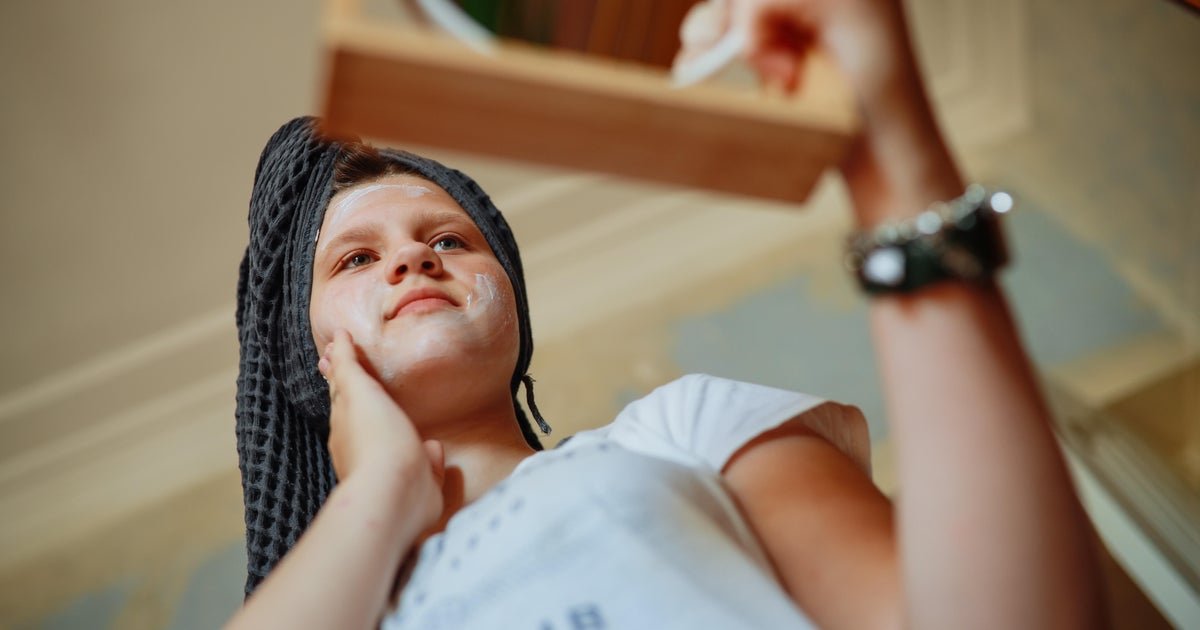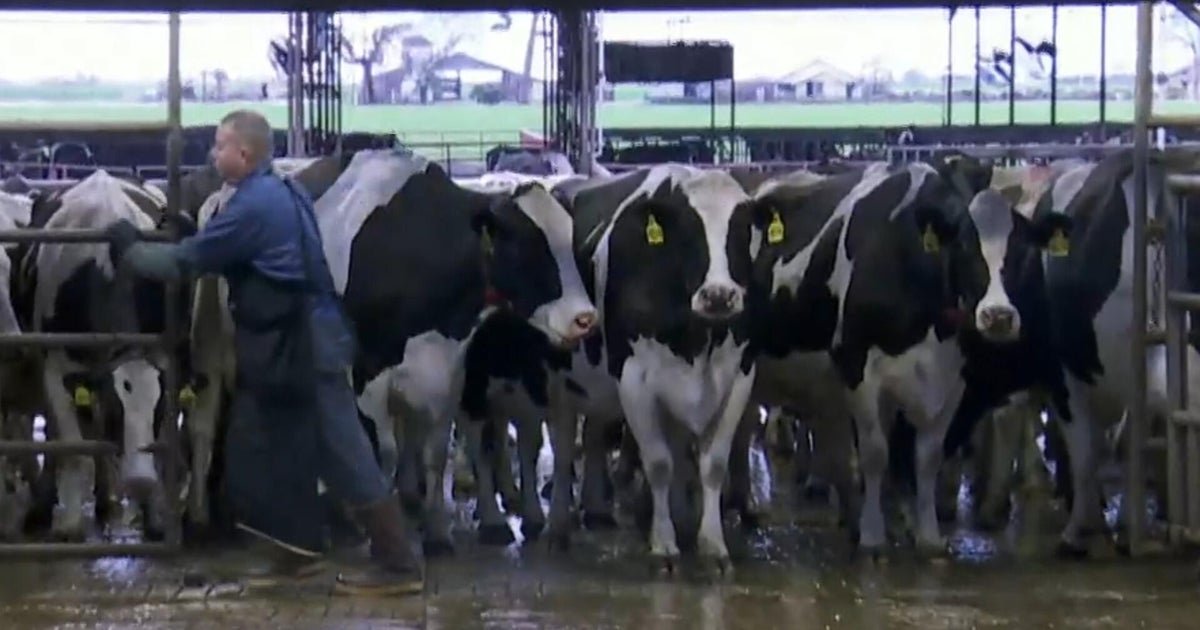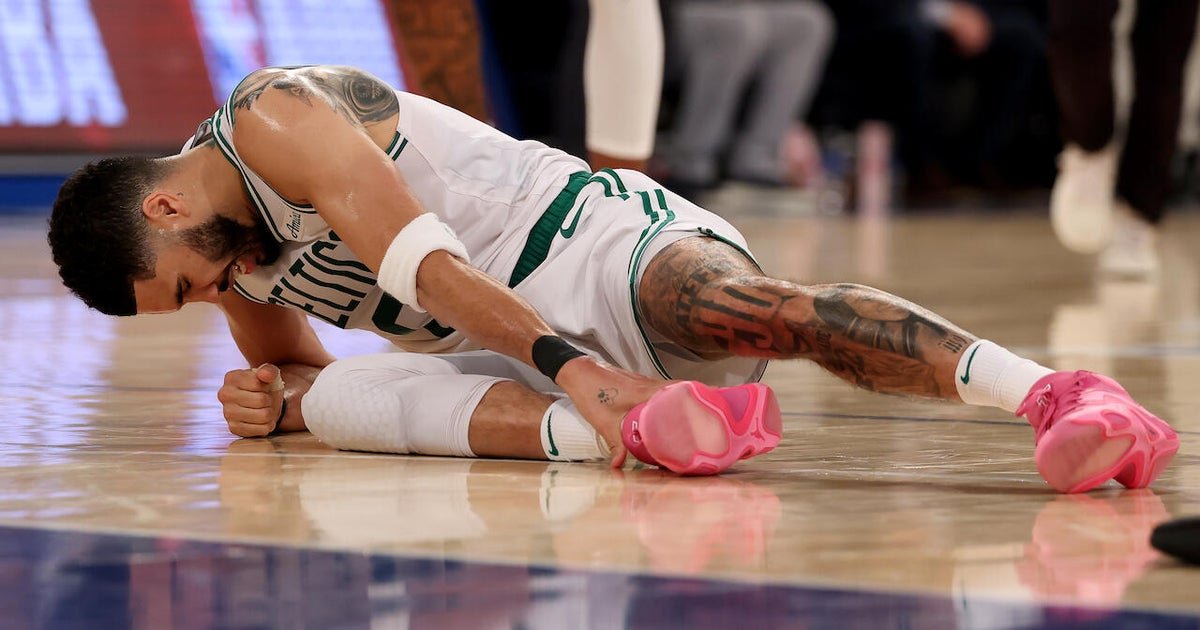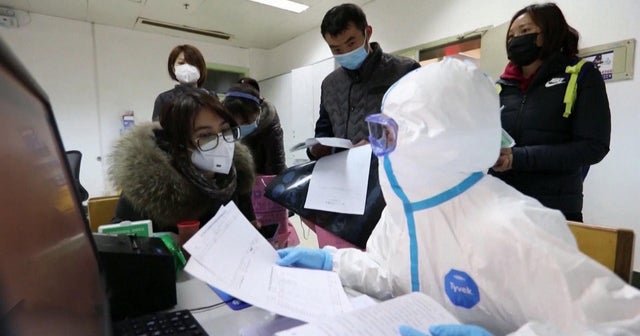[ad_1]
In a TikTok video, then-17-year-old actor Symonne Harrison unveils a bathroom counter full of products from the skincare brand Drunk Elephant that would retail for at least $700 total.
“Guys, I just got the biggest package from them,” Harrison tells her 3.8 million followers, adding that she’s new to the brand’s “family.” “I know Drunk Elephant is known for mixing, doing little potion vibes.”
Those “potions” are so-called “skincare smoothies,” popular on social media and marketed by the brand, which suggests trios of products to mix together as part of a skincare regimen. They’ve become a blueprint for some of Generation Alpha’s favorite “get ready with me” videos as skincare products and adult influencers who promote them have become increasingly trendy among tweens.
But like in Harrison’s video — which features an eye cream containing vitamin C that Drunk Elephant recommends those 12 and under avoid — many of those social media posts advertise products not suitable for such young skin. (Harrison did not respond to CBS News’ request for comment.)
CBS News Confirmed analyzed more than a dozen popular TikTok accounts featuring skincare-obsessed teens and tweens and found that many featured products with anti-aging ingredients that, according to dermatologists, can be harmful to young skin. Often, those were promotions done in partnership with brands.
Nielsen data show that households with children 12 and under spent $2.4 billion in 2023 on skincare and makeup — more than households with teens.
Dr. Smita Awasthi, director of pediatric dermatology at U.C. Davis Health, said certain skincare products are meant to peel the skin, but removing the outer layer of a child’s skin can lead to painful rashes and increased risk of sunburns. While she does prescribe retinoids for acne treatment to children in some rare cases, she stresses there is a stark difference between over-the-counter retinoid acne treatments and the retinol used in cosmetics.
“When I’m prescribing a retinoid, I know the concentration, and I know exactly what it is and how it’s going to work,” she told CBS News.
Cosmetic retinol products include different ingredients which she said can lead to increased risk of irritation and adverse reactions in young skin.
Packaging for over-the-counter acne retinoids clearly identify that it is an acne treatment, she said. But many popular skincare products that contain retinols and other harsh anti-aging ingredients don’t clearly identify what they are intended for or that the ingredients can be harmful to young skin.
Kierstyn McBrayer, a 22-year-old content creator who focuses on makeup and skincare, told CBS News her audience is mostly tweens. Her 16-year-old sister first got into skincare about three years ago, she said, and was using products with retinol and vitamin C until she realized they weren’t good for her skin. Other viewers have told her they were doing the same until they learned what was harming their skin.
“A lot of the problem is just kids watching adults doing skincare content, and I know a lot of these adults are probably not purposely aiming their content at children, but it’s kind of hard because it’s like [in the] past few years, skincare content has been considered heavily by children,” she said.
In California, lawmakers are considering a bill that would make it illegal to sell certain anti-aging cosmetics to children under 18 years old. The bill was defeated last year and reintroduced in the current legislative session.
But while the proposed law would target retailers, brands could continue to use social media and kid-friendly branding and packaging to market their products to children.
A CBS News review of 240 recent skincare posts from a dozen popular teen influencers on TikTok showed only 15 videos, or just 6% of posts, were tagged as promotional content.
The Federal Trade Commission requires that online influencers disclose when they have a “material connection” to a brand, including being paid or receiving free products. The agency’s website specifies the disclosure should not be mixed in with a group of hashtags or links.
TikTok instructs creators to turn on the “content disclosure setting” when promoting a brand or product; this would add a label to the video that clearly states the footage is “promotional content” or a “paid partnership.” If the setting is not enabled, TikTok could remove or restrict the video.
Embreigh Courtlyn, 15, often posts “get ready with me” TikToks — chatty, casual videos showing people doing skincare or makeup or getting dressed. In one video, she holds up two face masks from the Korean skincare brand I Dew Care, saying, “It’s my favorite face mask ever.” At the bottom of the video is a small label that reads “paid partnership.”
Courtlyn’s manager told CBS News, “For any brand deal she accepts, she either enables the paid partnership tab or includes #[brand]partner in the caption to ensure compliance with FTC guidelines.”
Sometimes TikTokers signal promos to their audience in less obvious ways, such as putting #ad or #partner in the caption.
Mar Taylor, a 17-year-old with more than 270,000 TikTok followers, said the skincare brands he’s worked with have instructed him on how to stylize and label the footage. Taylor used the hashtag “glowpartner” in a TikTok advertising Glow Recipe’s new toner. Taylor also said brands can give influencers a custom discount code to share with their audience, and the influencers receive a cut of the money when people use the code.
McBrayer said sometimes brands will ask her not to label her collaboration videos with #ad. Instead, they ask to be referred to as “partners.”
She said this may be because videos with #ad don’t perform as well, something she has noticed in her own TikTok content.
This means that whether content creators intend to or not, they’re advertising products to children who may not realize they’re being marketed to.
“We know that developmentally, they don’t recognize ads at the same level that adults do,” said Drew Cingel, an associate professor at U.C. Davis who studies the intersection of adolescents, psychology and social media marketing. “And it becomes much more blurred in a social media environment.”
“I can’t tell you how many tweens that I’ve spoken to that say, when I grow up, I want to be an influencer,” he added. “If they see a teenage influencer getting these products, getting likes and getting all of the social gratification and money, that’s what they’re going to want to do.”
As the skincare trend among tweens has grown, some brands launched counter-marketing campaigns to tell kids they don’t need elaborate skincare routines. Dove launched a campaign called “Face of 10” where dermatologists post videos aiming to inform kids about appropriate skincare. On Instagram, Kiehl’s posted an image of a young boy in the sand labeled “the only exfoliating kids should do,” and a young girl in a ballet class labeled “the only 10-step routine kids should learn.”
At the same time, many skincare brands feature kid-friendly packaging and marketing. While Drunk Elephant advertises “skincare smoothies,” Glow Recipe sells a $76 “glow essentials kit” in a box made to look like a pink locker and labeled “back to school.” The set contains a watermelon toner and strawberry primer with beta hydroxy acid and a lip balm with hyaluronic acid, all ingredients dermatologists say tweens should avoid.
Drunk Elephant and Glow Recipe did not respond to CBS News’ request for comment.
“How do you get a child’s attention amid all these other products in a store?” Cingel said. “You put fruits, you put things that are cute on it, you put bright colors, we know that those things draw and hold children’s attention.”
[ad_2]



